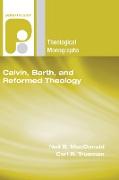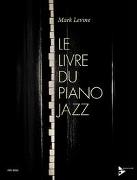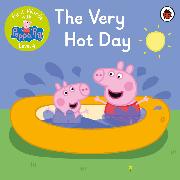Calvin, Barth, and Reformed Theology
BücherAngebote / Angebote:
There can be little doubt that John Calvin and Karl Barth belong to the first rank of great theologians of the Church and both continue to exert profound influence on friend and foe alike. Both were theologians whose writings have particularly helped to shape the world of Reformed theology. Historically, there can be little doubt that Calvin's influence on Reformed doctrine has been much greater than that of Barth, and this continues to be so in the present day. In contract, Barth's Reformed credentials have at times been questioned - not least because of his distinctive reformulation of the doctrines of election and atonement. This raises the question: can there be a fruitful dialogue or engagement between those who seek to maintain the traditional, Calvin-orientated stance of the Reformed faith and those who are persuaded of the value of Barth's reconstruction of Reformed theology? This book offers an opportunity to assess how Calvin and Barth might help carry the mantle of Reformed theology into the future. Doctrinal areas of focus: the sacraments, the nature of atonement, and scripture.
'This set of well-informed, lively essays on Calvin, Barth and the Reformed tradition will stimulate their readers to a fresh appreciation of these great thinkers and the stream of church and theological life to which they both belong.'
John Webster, Professor of Systematic Theology, University of Aberdeen
'The much contested relationship between Barth and Calvin, and between both and what is commonly termed "Reformed Theology", here receives careful and focused discussion. While unlikely to satisfy the prejudiced, these nuanced and scholarly essays represent a welcome contribution to serious debate that will stimulate and inform (n a context that too often has issued in more friction than illumination).'
John E. Colwell, Tutor in Christian Doctrine and Ethics, Spurgeon's College, London
'While there is not shortage of books on Calvin and Barth, and while studies of Barth frequently note his relationship to the Reformed tradition in general Calvin in particular, the production of a volume devoted to their relationship within the wider Reformed context represents a genuine contribution to the field. The volume is welcome as an attempt to relate Calvin and Barth in an historically informed and nuanced fashion, and proceeds by way of detailed study of the two thinkers' take on a select but significant number of theological topics.'
Ian A. McFarland, Associate Professor of Systematic Theology, Candler School of Theology, Emory University Atlanta
Neil B. MacDonald is the author of Metaphysics and the God of Israel: Systematic Theology of the Old and New Testament (Baker Academic / Paternoster, 2006) and Karl Barth and the Strange New World within the Bible: Barth, Wittgenstein and the Metadilemmas of the Enlightenment (Paternoster, 2001). He is a member of the Center of Theological Inquiry in Princeton. He is a Reader in Theological Studies at Roehampton University, London.
Carl Trueman is author of Luther's Legacy: Salvation and English Reformers 1525-1556 (Clarendon, 1994) and The Claims of Truth: John Owen's Trinitarian Theology (Paternoster, 1998). He is Professor of Historical Theology and Church History at Westminster Theological Seminary, Philadelphia.
Folgt in ca. 10 Arbeitstagen




